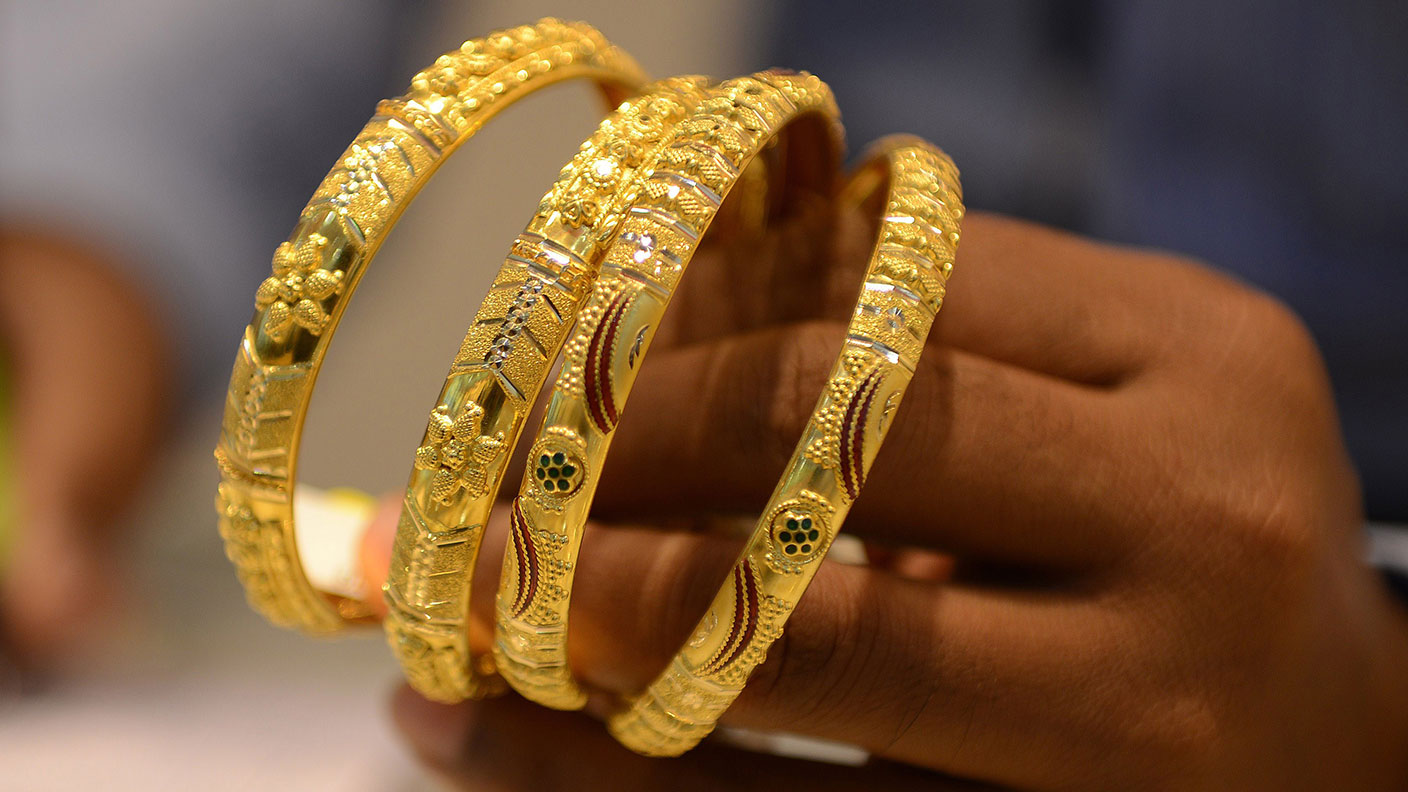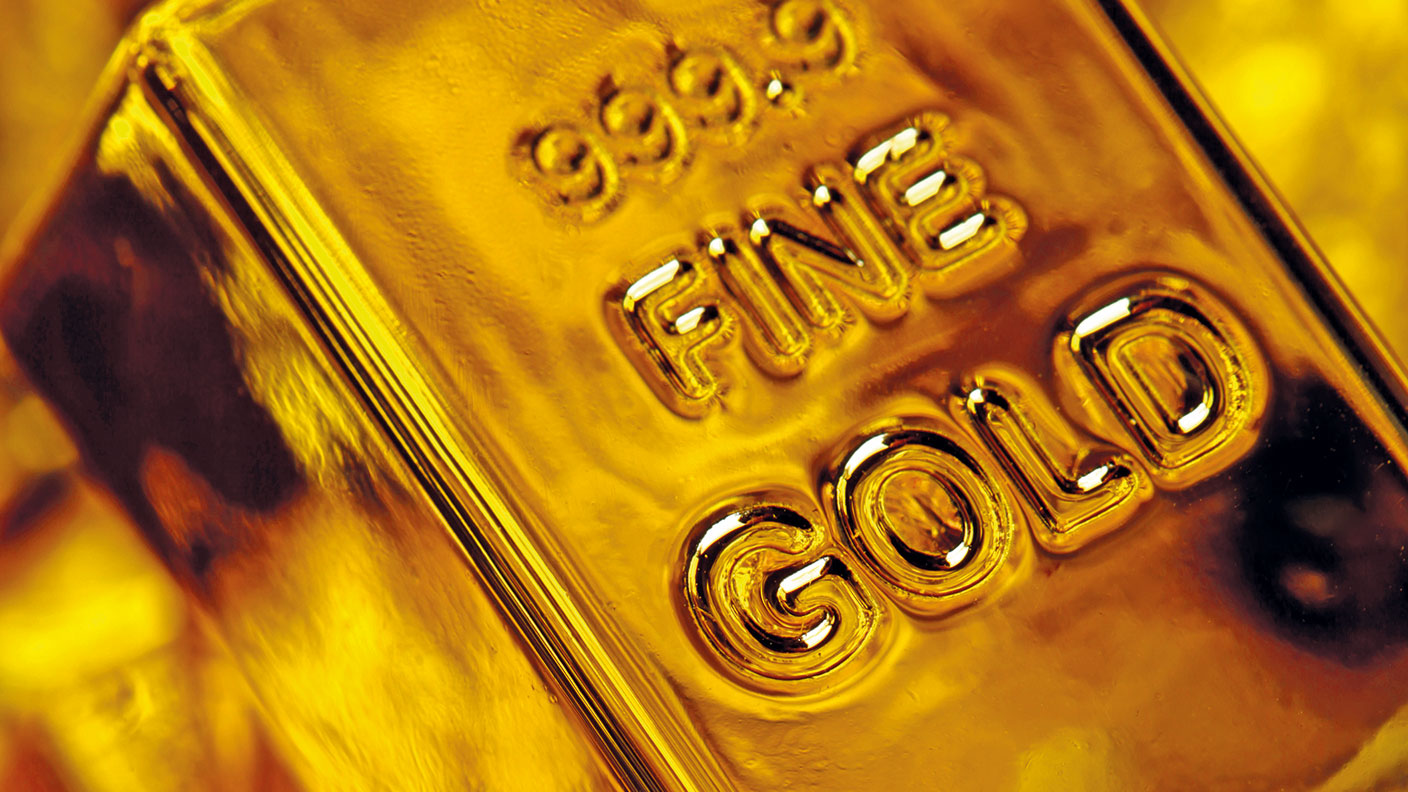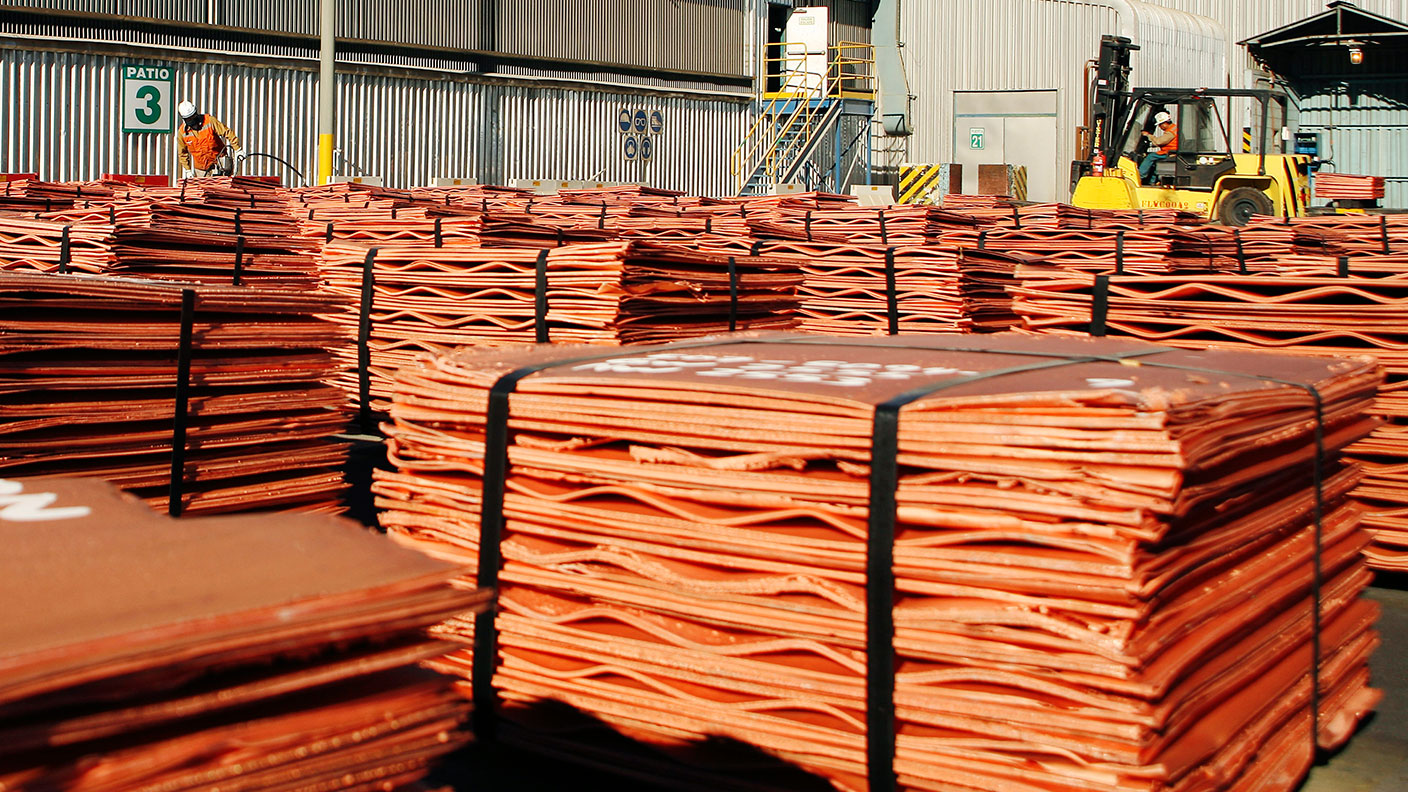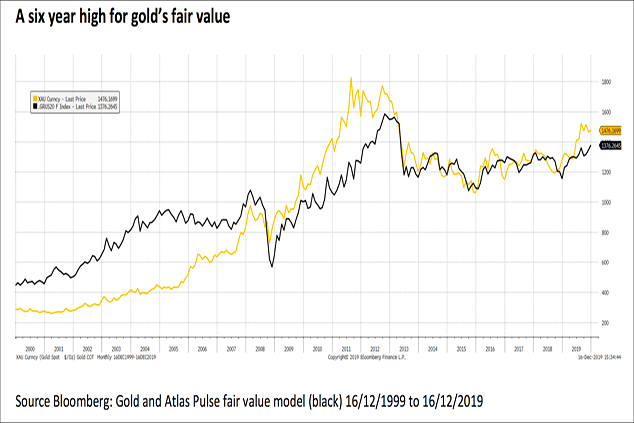Why it’s worth holding a bit of gold in your portfolio
Global equities are almost in bear market territory. We don’t know what will happen next. But that’s exactly why you should have some gold, says John Stepek.

Get the latest financial news, insights and expert analysis from our award-winning MoneyWeek team, to help you understand what really matters when it comes to your finances.
You are now subscribed
Your newsletter sign-up was successful
Want to add more newsletters?

Twice daily
MoneyWeek
Get the latest financial news, insights and expert analysis from our award-winning MoneyWeek team, to help you understand what really matters when it comes to your finances.

Four times a week
Look After My Bills
Sign up to our free money-saving newsletter, filled with the latest news and expert advice to help you find the best tips and deals for managing your bills. Start saving today!

"We have interest rates going up at a clip that's much faster than certainly a lot of people, including myself, would have anticipated. I think the Fed is out of control."
Central banks are independent, in theory. But that won't stop the president of the US from giving his full and frank opinion on their performance.
Donald Trump reckons the Federal Reserve is to blame for the recent spasm of panic in markets.
MoneyWeek
Subscribe to MoneyWeek today and get your first six magazine issues absolutely FREE

Sign up to Money Morning
Don't miss the latest investment and personal finances news, market analysis, plus money-saving tips with our free twice-daily newsletter
Don't miss the latest investment and personal finances news, market analysis, plus money-saving tips with our free twice-daily newsletter
"I'd like our Fed not to be so aggressive because I think they're making a big mistake."
Will Trump get his wish?
Will the Fed respond to Trump's threats? Or to those of the market?
As I write this, markets appear to be recovering a bit of poise. BTFD (the excitable version of "buy the dip") dies hard (although let's get to the end of the US session before we make too many judgements about when or if this wobble might end).
But while the S&P 500 is not yet down 10% (the magic number that represents a "correction"), both the tech-heavy Nasdaq and the wider Russell 2000 are already in correction territory.
Those are quite chunky falls by recent standards. And that's just talking about the US. As Michael Mackenzie points out in the FT, world markets have really had it bad the FTSE All-World index, excluding the US, is now down around 17% from its January peak. That's almost a bear market (which is deemed as 20% for essentially arbitrary reasons.)
Meanwhile, gold that much-detested haven for those still superstitious enough to fear that economists and central bankers haven't quite got all of this figured out yet had a big bounce, all the way up to $1,220 an ounce.
We don't know what the Fed will do. It's a difficult position for Jerome Powell to be placed in. If he looks as though he's caved to Trump, then his credibility is shot. Yet at the same time, the Fed has a history of responding to market falls with soothing words.
Powell might have started out talking tough, but is he really going to feel comfortable standing there with the S&P 500 down 10%-15%, with everyone shouting at him "do something"? Be interesting to find out.
Say Powell buckles. Markets cheer up. But then inflation gets a clearer run. And it's amazing how quickly the narrative can go from fearing an imminent recession to fretting about an inflationary boom.
Or Powell stays strong. Markets continue to slide. How long does that go on for before they either wake up and realise everything's OK or before Powell realises that in fact, he is being over-optimistic about the economy's capacity to accept higher rates?
Days like these are why you hold a bit of gold in your portfolio
I don't know what's going to happen. But to me, this is the point of owning a bit of gold in your portfolio. It's insurance. It's the asset that goes up when most things are going down. It benefits from two main things: currency debasement and panic.
So say Powell backs down and, rather than heading for recession, inflation in fact takes off. Gold would benefit in that scenario, even if most other things struggled.
Or say Powell stands firm, and it turns out markets are right to panic and we end up with an economy suddenly crushed under its debt burden. Again, gold would benefit from the sheer panic and the rush for any liquid asset with no counterparties.
And if, instead, everything is OK well, who cares what's happening to your gold if the rest of your portfolio is melting up?
However, beyond that, I'd also point out that I fully believe that the eventual resolution to the fallout from the 2008 financial crisis will be that we shift to a new monetary regime. That'll be quite a kerfuffle. During said kerfuffle, I think owning some gold will also be psychologically helpful.
Let's unpack that a bit in the little space we have left this morning, though I'll be returning to it here and in MoneyWeek (subscribe now!) again and again.
Until early last century, currencies were tied to gold. That made it hard to expand the money supply. It also made it hard for governments to overspend. So it often got abandoned temporarily usually during wartime but countries did make the effort to get back onto it, as something of a badge of honour.
But then, in the run-up to World War II and during the Depression, various countries which had rejoined the gold standard at too high a rate (Britain being the main one) ditched it altogether. Then the chaos of World War II came along, and left the US the only developed country with any money left, basically.
So in the wake of that cataclysm, we got the Bretton Woods system one that linked global currencies to the dollar, with the dollar itself pegged to gold. This ended in 1971, when Richard Nixon (another somewhat controversial president) took the US off the gold standard.
From then on, we entered the era of purely fiat currencies. Within countries, money is backed by faith in the government and the economy. And the global system is backed up by the US dollar.
So in effect, we've gone from a strict gold standard, to a very loose gold standard conducted via the US dollar, to a purely fiat standard, with the US dollar the global "reserve" currency.
The coming global financial order will involve China as a big player
As you might have gathered, changes in the monetary system tend to be accompanied by trauma. World War II; the inflation and political upheaval of the 1970s.
And of course, we're now seeing the fallout from the 2008 near-collapse of the financial system. Funnily enough, right after that happened, there were explicit calls from Europe for "a new global financial order". Then the eurozone crisis hit, and Europe became rather more preoccupied with its own woes.
But these transitions are not things that are decided at the negotiating table. They may be formalised there, but only after events have forced everyone's hands.
The move away from the global dollar standard is a while off, and it may be decades before we formally recognise the transition in the same way that we recognise the shift from Bretton Woods.
But it starts with China turning the yuan into a proper reserve currency. That would ultimately involve a free float, and the process of getting there would be highly disruptive and uncomfortable for all involved.
So keep an eye on what China does with its currency. And also, hang on to your gold.
Get the latest financial news, insights and expert analysis from our award-winning MoneyWeek team, to help you understand what really matters when it comes to your finances.

-
 Can mining stocks deliver golden gains?
Can mining stocks deliver golden gains?With gold and silver prices having outperformed the stock markets last year, mining stocks can be an effective, if volatile, means of gaining exposure
-
 8 ways the ‘sandwich generation’ can protect wealth
8 ways the ‘sandwich generation’ can protect wealthPeople squeezed between caring for ageing parents and adult children or younger grandchildren – known as the ‘sandwich generation’ – are at risk of neglecting their own financial planning. Here’s how to protect yourself and your loved ones’ wealth.
-
 'Investors should brace for Trump’s great inflation'
'Investors should brace for Trump’s great inflation'Opinion Donald Trump's actions against Federal Reserve chair Jerome Powell will likely stoke rising prices. Investors should prepare for the worst, says Matthew Lynn
-
 Metals prices wobble on slowdown fears
Metals prices wobble on slowdown fearsNews The S&P GSCI index of 24 major raw materials has fallen back 9% since mid-June on growing fears of a recession, and copper has hit a 16-month low after losing 22% since a peak in early March.
-
 How to invest in energy and metals as tech stocks crash
How to invest in energy and metals as tech stocks crashAnalysis It’s been a terrible week for stockmarkets. But not everything is crashing – “real” assets such as metals and energy are holding up well and should have a good 2022. Dominic Frisby picks the best ways to buy in.
-
Gold regains some of its shine
News The gold price perked up this week, hitting a four-week high.
-
 Gold regains its shine after inflation risks resurface
Gold regains its shine after inflation risks resurfaceAnalysis Gold prices have been rising over the past month as fears of US inflation resurface. Saloni Sardana explains whether this could usher in a new bullish era for the precious metal.
-
 The going looks good for gold
The going looks good for goldAdvice With inflation fears rising and interest rates nailed to the floor, the outlook for gold is bright, says John Stepek.
-
 Governments’ money-printing mania bodes well for base metals
Governments’ money-printing mania bodes well for base metalsTips Money is being printed like there is no tomorrow. Much of it will be used to pay for infrastructure projects – and that will be good for metals, says Dominic Frisby.
-
 Here’s how gold could rise above $7,000 an ounce
Here’s how gold could rise above $7,000 an ounceFeatures That the gold price could hit $7,000 an ounce is a logical and plausible possibility, says Charlie Morris. Here, he explains how it could get there.